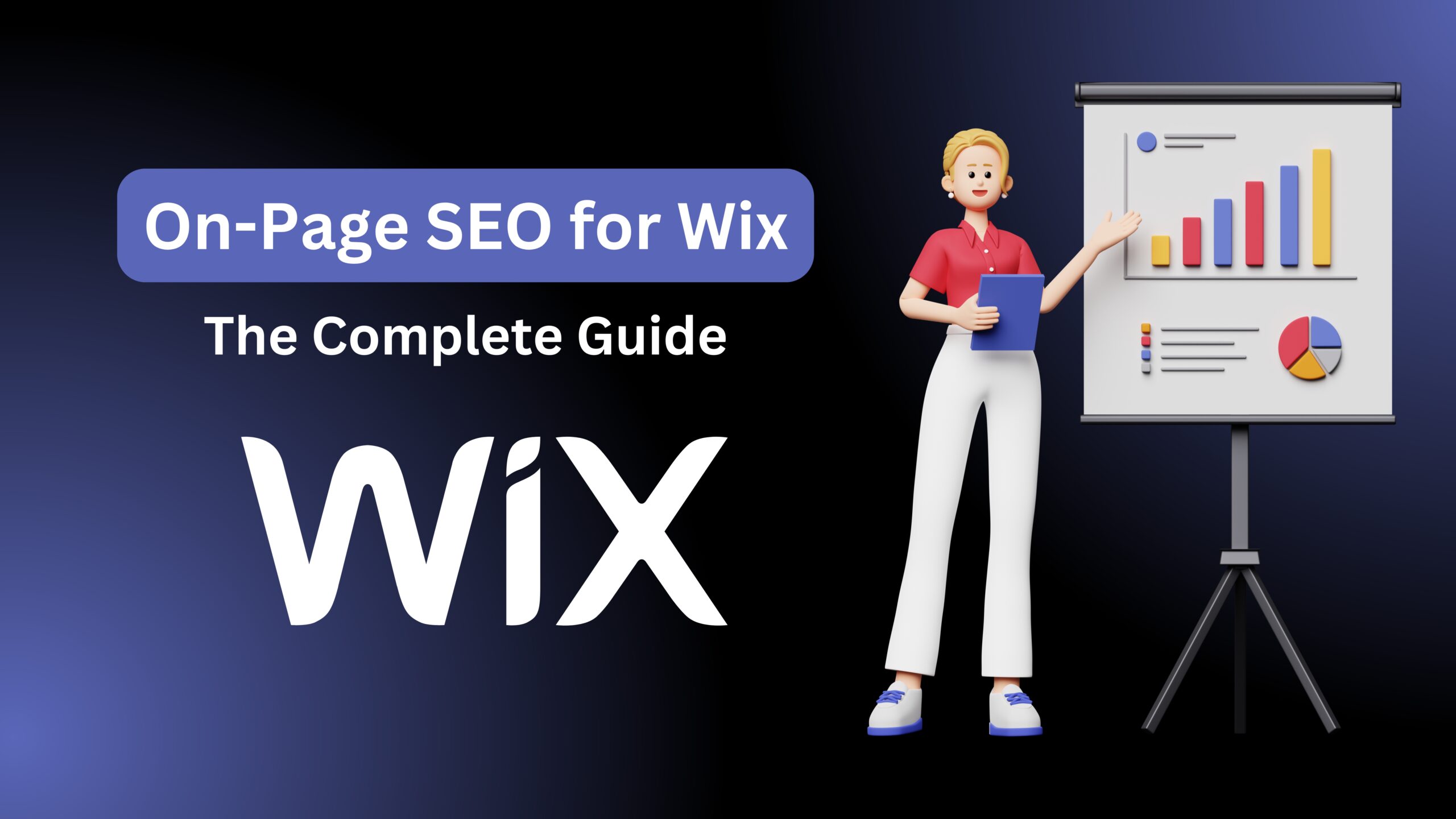Introduction
On-Page SEO for Wix is essential for improving search engine rankings and driving organic traffic. Wix CMS offers a user-friendly interface, making on-page optimization easier than other platforms. If you’re wondering how to create a Wix website and optimize it effectively, this guide covers everything from SEO fundamentals to advanced techniques. We’ll also compare Wix On-Page SEO vs WordPress, highlighting the advantages of Wix built-in SEO tools. Understanding why keywords are important for on-page SEO will help you optimize your content strategically.
What is Wix CMS and Why Is It Good for SEO?
Wix CMS (Content Management System) is a drag-and-drop website builder designed for ease of use. Unlike traditional platforms, it provides built-in SEO features, making on-page optimization simple for beginners and experts alike. Here’s why Wix website SEO is easy:
- SEO Wiz: Step-by-step SEO setup
- Custom Meta Tags: Titles, descriptions, and headers
- Mobile Optimization: Responsive design
- Structured Data: Built-in schema markup
- SSL Certificate: Secure and trusted by search engines
How to Create a Wix Website with SEO in Mind
Choosing the Right Template and Structure
When learning how to create a Wix website, start with an SEO-friendly template. Follow these steps:
- Select a mobile-responsive theme
- Use a clean URL structure
- Organize pages into a logical hierarchy
- Enable HTTPS for security
- Optimize images for faster loading
Setting Up SEO Basics
Before diving into on-page optimization, configure these SEO settings:
- Custom URLs: Use keyword-rich slugs
- Title & Meta Descriptions: Optimize with focus keyword and relevant keywords
- Alt Text: Describe images using relevant keywords
- Internal Linking: Link related pages to improve navigation
On-Page Optimization Guide for Wix Websites
Keyword Research & Placement
Keywords are the foundation of On-Page SEO for Wix. Follow these best practices:
- Target focus keyword naturally in content
- Include relevant keywords in headings
- Use LSI keywords to improve context
- Avoid keyword stuffing; maintain readability
Optimizing Title Tags & Meta Descriptions
Title Tag: Place the focus keyword at the beginning of your title. Example: On-Page SEO for Wix: The Ultimate Optimization Guide
Meta Description: Keep it under 160 characters and naturally include the focus keyword and relevant keywords.
Structuring Headers (H1, H2, H3, H4)
Proper header usage helps search engines and users navigate content. Follow this hierarchy:
- H1: On-Page SEO for Wix (Only one H1 per page)
- H2: Subtopics with relevant keywords
- H3: Supporting details and explanations
- H4: Additional insights or examples
Enhancing Readability & User Experience
Google prioritizes user experience, so make your content:
- Easy to read: Use short paragraphs and bullet points
- Engaging: Add visuals and interactive elements
- Fast-loading: Optimize images and enable caching
- Mobile-friendly: Ensure proper display on all devices
Wix On-Page SEO vs WordPress – Which is Better?
Wix and WordPress are two popular website platforms, but Wix On-Page SEO vs WordPress comparison shows that Wix is more user-friendly for beginners, while WordPress offers advanced flexibility. Here’s a breakdown:
| Feature | Wix | WordPress |
|---|---|---|
| Ease of Use | Easy drag-and-drop | Requires coding skills |
| SEO Features | Built-in SEO tools | Requires plugins |
| Customization | Limited | Fully customizable |
| Speed Optimization | Automatic | Requires manual tweaks |
| Security | SSL & updates included | Needs manual security plugins |
Why Keywords Are Important for On-Page SEO
Keywords guide search engines in understanding your content. Why are keywords important for on-page SEO? Because they:
- Help match search intent
- Improve content relevance
- Increase click-through rates (CTR)
- Enhance user engagement
To maximize effectiveness:
- Use long-tail keywords for targeted traffic
- Avoid keyword stuffing to prevent penalties
- Optimize URLs, headings, and content naturally
Advanced On-Page SEO Techniques for Wix
Using Structured Data Markup
Wix allows easy integration of schema markup, improving visibility in search results. Use structured data for:
- Articles
- FAQs
- Local businesses
- Products & Reviews
Enhancing Internal & External Linking
Internal links help search engines navigate your site, while external links boost credibility. Best practices:
- Link to authoritative sources
- Use descriptive anchor text
- Avoid excessive outbound links
Optimizing Images & Videos for SEO
Multimedia content improves engagement but must be SEO-friendly:
- Use descriptive file names
- Add alt text with keywords
- Compress images for faster loading
Conclusion
Mastering On-Page SEO for Wix ensures better rankings, improved user experience, and higher conversions. By implementing on-page optimization techniques like keyword research, structured data, and internal linking, your Wix website can compete effectively in search results. Whether comparing Wix On-Page SEO vs WordPress or understanding why keywords are important for on-page SEO, optimizing each element correctly will lead to long-term SEO success.
Start optimizing your Wix website today and watch your rankings improve!



